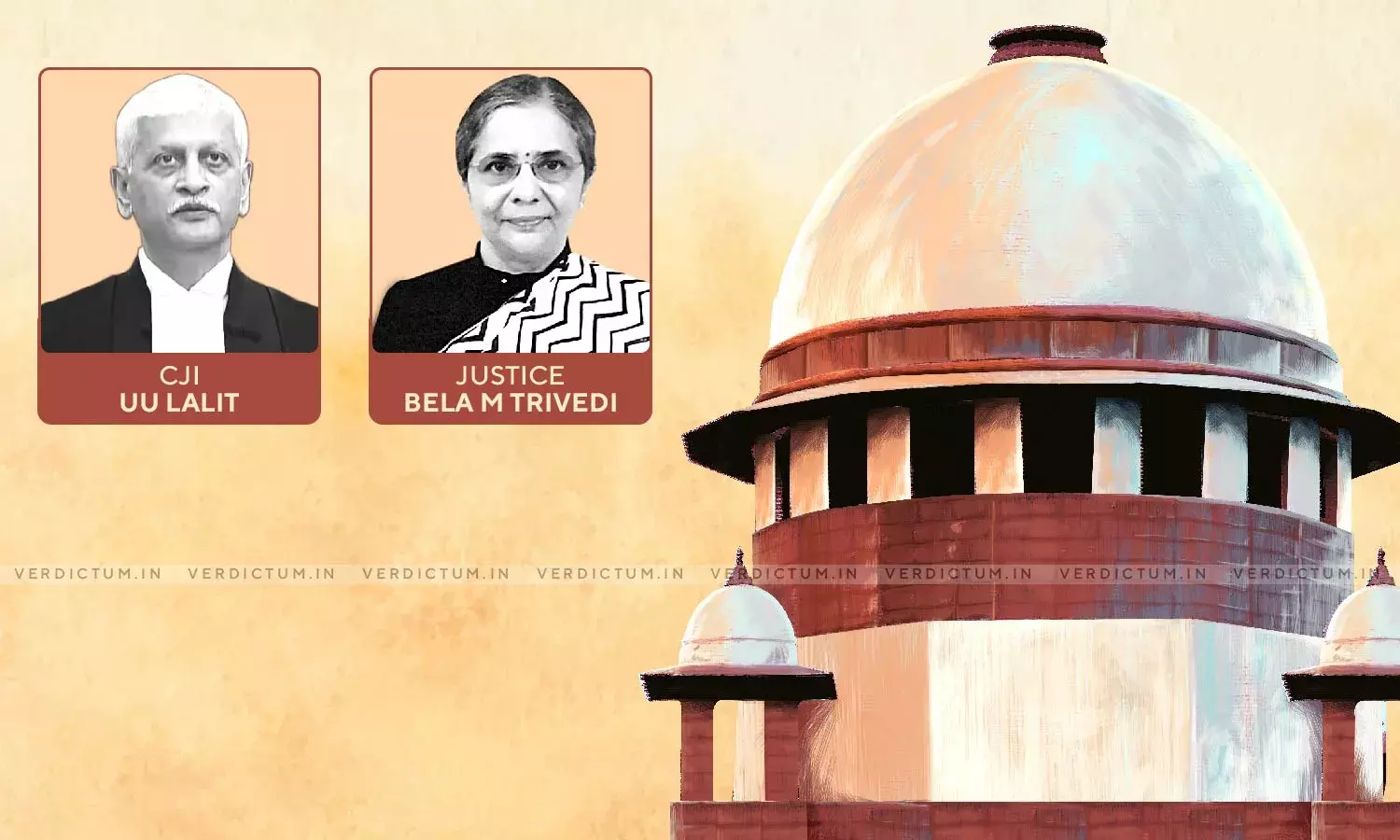Handing Over Money With The Intent Of Giving Bribe Is Connected With Proceeds Of Crime Under PMLA: SC

The Supreme Court while allowing an appeal filed by the Directorate of Enforcement has held that an act of handing over the money with the intent of giving a bribe relates to the proceeds of crime.
The Bench of Chief Justice of India Uday Umesh Lalit and Justice Bela M. Trivedi observed –
"By handing over money with the intent of giving bribe, such person will be assisting or will knowingly be a party to an activity connected with the proceeds of crime. Without such active participation on part of the person concerned, the money would not assume the character of being proceeds of crime. The relevant expressions from Section 3 of the PML Act are thus wide enough to cover the role played by such person."
The Apex Court further held –
"On a bare perusal of the complaint made by the Enforcement Directorate, it is quite clear that the respondent was prima facie involved in the activity connected with the proceeds of crime. The view taken by the High Court that the respondent cannot be held liable for the offence under the PML Act is thus completely incorrect."
Additional Solicitor General of India Balbir Singh appeared for the appellants and Senior Advocate S. Nagamuthu appeared on behalf of the respondent.
Brief facts of the case –
Andasu Ravinder, IRS, was working as Additional Commissioner of Income Tax, Chennai. On intelligence, the Central Bureau of Investigation i.e., CBI checked a car that was parked in front of the premises of his house and recovered a sum of Rs. 50,00,000/- in cash. It was alleged that Andasu Ravinder and Uttam Chand Bohra were in that car at that time.
During the investigation, it came to light that the sum of Rs.50,00,000/- was handed over to Ravinder by Padmanabhan Kishore, whose income tax file was pending with Ravinder for clearance. Since Padmanabhan wanted certain benefits, he had allegedly paid the sum of Rs.50,00,000/- as a bribe to Andasu Ravinder.
The CBI registered an FIR and after completing the investigation, filed a charge sheet before the Special Court for the CBI Cases, Chennai, for the offences under Section 120- B IPC and Sections 7, 12, 13(1)(d) r/w 13(2) of the Prevention of Corruption Act, 1988, against Andasu Ravinder, Padmanabhan Kishore, Uttam Chand Bohra, and others. Since the case registered by the CBI disclosed the commission of a 'schedule offence' under the Prevention of Money Laundering Act, 2002, the Enforcement Directorate registered a case and after completing the investigation, filed a complaint against Everonn Education Limited and three others including Padmanabhan Kishore i.e., the respondent for the offences under Section 3 and 4 of the PML Act.
The High Court allowed the writ petition and quashed the proceedings in PML Act against the respondent. Therefore, ED being dissatisfied with the decision of HC filed an appeal before the Supreme Court.
The Court observed, "It is true that so long as the amount is in the hands of a bribe giver, and till it does not get impressed with the requisite intent and is actually handed over as a bribe, it would definitely be untainted money. If the money is handed over without such intent, it would be a mere entrustment."
In this context, the Court further held-
"If it is thereafter appropriated by the public servant, the offence would be of misappropriation or species thereof but certainly not of bribe. The crucial part therefore is the requisite intent to hand over the amount as bribe and normally such intent must necessarily be or prior to the moment the amount is handed over. Thus, the requisite intent would always be at the core before the amount is handed over."
The Supreme Court after hearing both parties held –
"The observations made by us regarding involvement of the respondent are prima facie in nature and for considering whether the allegations made by the prosecution if accepted to be true at this stage, would make out an offence or not. Needless to say that, on facts, the matter shall be considered purely on merits at the appropriate stage(s)."
Accordingly, the Court allowed the appeal and set aside the judgment and order passed by the High Court.
Cause Title – Directorate of Enforcement v. Padmanabhan Kishore
Click here to read/download the Judgment


